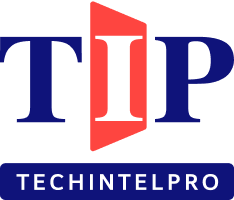


Vultr, the world’s largest privately-held cloud infrastructure company, today announced the findings of a new survey that reveals how AI is reshaping platform engineering. Platform Engineering’s annual The State of AI in Platform Engineering survey shows that AI adoption is now mainstream among platform engineers, with 75% of teams already hosting or planning to host AI workloads and 89% using AI daily for tasks such as code generation and documentation. Yet the report warns of an “AI implementation plateau,” where early momentum outpaces actual enterprise value.
While adoption is strong, the survey also reveals gaps that limit enterprise-scale impact. To explore these gaps more deeply, Vultr sponsored a companion survey for The State of AI in Platform Engineering, targeting more than 120 professionals actively building AI-native systems. The findings highlight both the progress being made and the challenges that must be addressed to achieve success. Key findings include: * AI ownership is fragmented: Nearly 40% of organizations assign AI platform responsibilities to platform engineering teams, while a quarter (25%) report shared ownership across multiple groups, and 13% report no clear ownership at all. * Workload orchestration is uneven: Over 40% use Kubernetes extended for GPUs and AI workloads, while 35% do not orchestrate AI workloads in any way, underscoring a significant infrastructure maturity gap. * Integration is expanding, but pipelines lag: More than half (58%) embed AI into cloud-native applications, yet 41% have not adapted CI/CD or DevSecOps pipelines for AI. Among those that have, 28% are extending pipelines for model handling, and 24% are adding inference service steps. * Hybrid and on-prem remain relevant: While cloud-native integration dominates, 16% of organizations are taking a hybrid approach, and 9% continue to run GPU workloads on-premises, reflecting demand for flexible deployment options. * Standardization is urgent: Over 50% of respondents view AI infrastructure templates and blueprints as critical or very important to ensuring safe, scalable adoption. * Collaboration gaps persist: Nearly one-third (31%) report only limited collaboration with data science teams, and 16% report none at all, highlighting ongoing cultural and operational barriers.
“We haven’t seen adoption rates like this for a new technology since the 1990s; it’s pretty incredible. But the reality is most enterprise AI use today is still more experimental than strategic,” said Luca Galante, core contributor to the Platform Engineering Community. “Platform engineers are leading the way, but turning momentum into measurable impact will require stronger foundations.” “This survey echoes what we see every day: platform engineers are quickly becoming the linchpin of enterprise AI adoption,” said Kevin Cochrane, CMO of Vultr. “But momentum alone isn’t enough. Teams need clear golden paths and AI-first infrastructure that make workloads safe, repeatable, and scalable. That’s exactly what Vultr delivers, giving platform teams the foundation to move past experimentation and achieve real impact at global scale.”
As platform engineers take on the role of enabling AI across the enterprise, Vultr provides the AI-first infrastructure that makes it possible. With GPU-ready instances that deploy in minutes, global orchestration out of the box, and composable architectures designed for advanced MLOps, Vultr enables platform teams to move beyond the “AI implementation plateau” and toward enterprise-scale value. To download the full State of AI in Platform Engineering report, click here.
The report underscores platform engineering's pivotal role in AI, calling for addressed gaps in infrastructure and collaboration to unlock strategic value. By bridging these challenges, organizations can transform experimental AI into scalable, impactful solutions driving enterprise innovation.
Vultr is on a mission to make high-performance cloud infrastructure easy to use, affordable, and locally accessible for enterprises and AI innovators around the world. Vultr is trusted by hundreds of thousands of active customers across 185 countries for its flexible, scalable, global Cloud Compute, Cloud GPU, Bare Metal, and Cloud Storage solutions. Founded by David Aninowsky and self-funded for over a decade, Vultr has grown to become the world’s largest privately held cloud infrastructure company.
